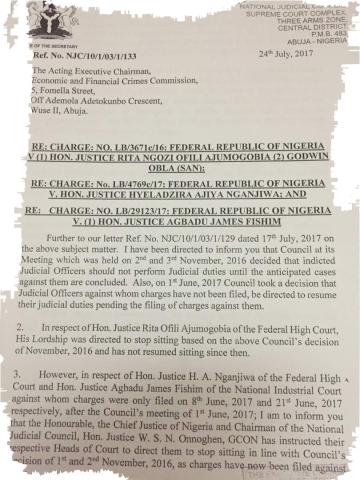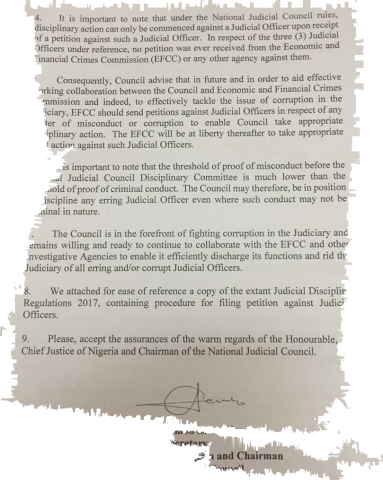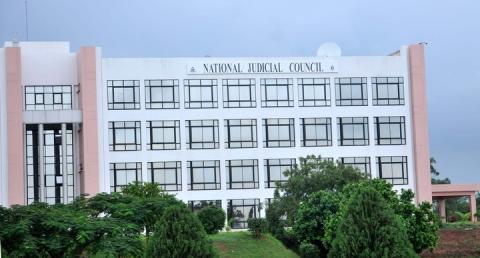
In documents made available to SaharaReporters, the NJC wrote to the EFCC acknowledging that charges had been filed against Justice Nganjiwa, as well as Justices Rita Ajumogobia and Agbadu Fishim.
The Economic and Financial Crimes Commission (EFCC) was given permission by the National Judicial Council (NJC) to try Justice Hyeladzira Nganjiwa and other judges accused of bribery, raising questions over the Court of Appeal’s dismissal of charges against Justice Nganjiwa on the grounds that the anti-graft agency does not have the power to prosecute any sitting judge.
In documents made available to SaharaReporters, the NJC wrote to the EFCC acknowledging that charges had been filed against Justice Nganjiwa, as well as Justices Rita Ajumogobia and James Agbadu-Fishim.
The NJC therefore notified the EFCC that the concerned judges had been directed to not perform any judicial duties pending the conclusion of their cases.
“I have been directed to inform you that Council, at is Meeting which was held on 2nd and 3rd November, 2016 decided that indicted Judicial Officers should not perform Judicial duties until the anticipated cases against them are concluded,” the NJC said in its letter to the EFCC.
“I am to inform you that the Honourable, the Chief Justice of Nigeria and Chairman of the National Judicial Council, Hon. Justice W.S.N. Onnoghen, GCON has instructed their respective Heads of Court to direct them to stop sitting in line with Council’s decision of 1st and 2nd November, 2016, as charges have now been filed against them.”
By asking the accused judges to step down from their posts while they face trial, the NJC indicated that it would allow the judges to face trial.
This is contrary to Justice Abimbola Adejumo-Obaseki’s ruling on Monday at the Court of Appeal that held that no sitting judge could be tried by the EFCC.
He stated that a sitting judge could only be tried by the NJC unless he or she is dismissed or forced into retirement by the NJC.
However, while urging the EFCC to the send petitions to the NJC before taking disciplinary action against a judge, the NJC raised no objection to the EFCC filing charges against Justice Nganjiwa and two other sitting judges.
In a controversial ruling on Monday, Justice Obaseki, presiding of the Court of Appeal in Abuja, dismissed bribery charges filed against Justice Nganjiwa.
The EFCC swiftly announced plans to appeal the ruling before the Supreme Court.
SaharaReporters learnt that the lead justice, Obaseki-Adejumo, is a spouse of the head of the National Industrial Court, Babatunde Adejumo, where another judge, James Agbadu-Fishim, is facing trial for receiving bribes from several lawyers.


